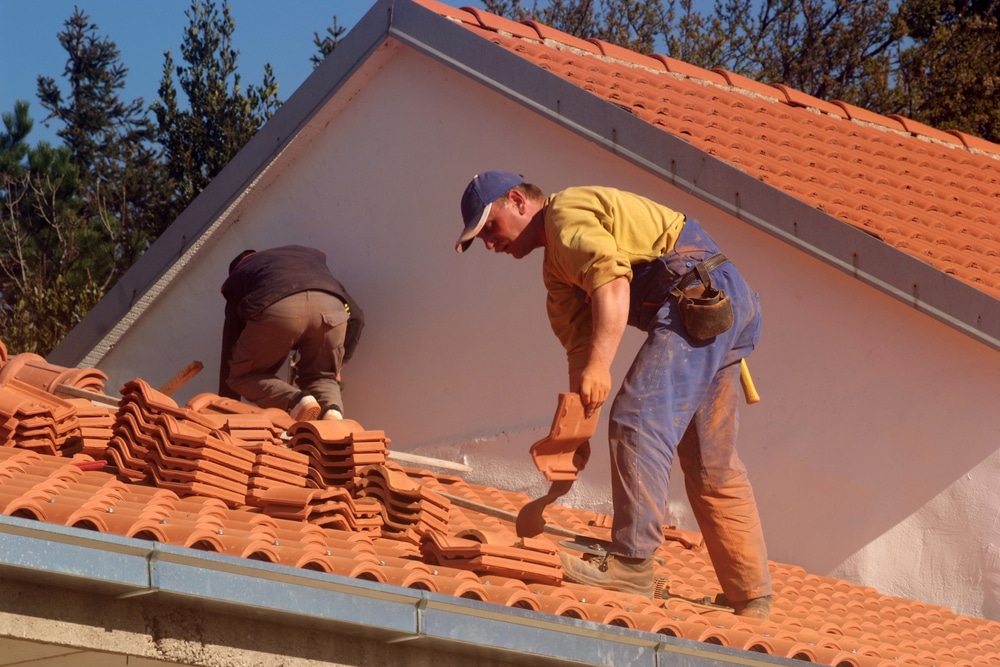Phoenix residents often grapple with unique environmental conditions that significantly impact various aspects of their homes, particularly their roofs. The city’s notably hot, arid climate and extreme temperatures present specific challenges that homeowners need to consider, especially when selecting roofing materials. This article delves into the lifespan of one of the most popular choices across America: asphalt roofing. We’ll explore how it holds up in the distinctive Phoenix climate and the factors contributing to its wear and tear, providing a comprehensive guide for any current or prospective homeowner in the Valley of the Sun.
What is Asphalt Roofing?
Asphalt roofing, a staple in American homes, consists of either fiberglass or organic mat base saturated with asphalt and coated with mineral granules. This structure provides a satisfactory balance between affordability, durability, and aesthetic appeal, explaining its widespread use. There are different types of asphalt shingles, including three-tab, dimensional, and luxury shingles, each varying in quality, longevity, and cost. Homeowners often choose asphalt due to its lower upfront cost compared to other materials and its ease of installation and repair.
However, while manufacturers often advertise a general lifespan of 20 to 30 years for asphalt shingles, this estimate doesn’t always consider specific regional climate conditions. In places like Phoenix, where the weather patterns and environmental factors differ significantly from those of other American cities, asphalt roofs can experience different stressors. These local nuances are crucial in understanding what Phoenix residents can expect regarding their asphalt roof’s longevity.
Phoenix’s Unique Climate: Challenges for Asphalt Roofs
Phoenix’s climate is predominantly hot and dry, with extreme temperatures, especially in the summer months. The city experiences over 299 sunny days per year, which is considerably more than the U.S. average. This intense sun exposure results in constant ultraviolet (UV) radiation, which can degrade the asphalt shingles over time. The UV rays dry out the asphalt, making it brittle and more susceptible to cracking, thereby diminishing the roof’s structural integrity and overall lifespan.
Moreover, besides the relentless heat and UV exposure, roofs in Phoenix also face thermal shock due to the sharp temperature drop at night. These fluctuations cause the materials to expand and contract, leading to increased wear and tear. While asphalt shingles are designed to be flexible and adaptable to changing conditions, the extreme nature of Phoenix’s climate can accelerate the aging process of shingles, necessitating more frequent repairs or replacements.
Factors Affecting the Lifespan of Asphalt Roofs in Phoenix
The installation process is paramount in determining the longevity of an asphalt roof. Proper installation requires precision and an understanding of local weather conditions. Misaligned shingles, improper shingle overhang, or incorrect nail placement can make the roof more susceptible to wind uplift and water penetration. Unfortunately, even the highest quality shingles won’t perform effectively if installed incorrectly, emphasizing the need for homeowners to hire experienced, reputable roofing contractors.
Ventilation and insulation also play critical roles in a roof’s lifespan. Proper attic ventilation ensures heat doesn’t build up under the roof, baking the shingles from underneath. Insulation, on the other hand, helps maintain a consistent temperature within the home, reducing the burden on the roof. Together, these systems help prevent premature deterioration of roofing materials, allowing for the maximum potential lifespan. Inadequate ventilation and insulation can trap heat and moisture, leading to warped shingles, mold, or rot.
Extending Your Asphalt Roof’s Lifespan: Tips and Best Practices
Selecting materials designed to withstand high temperatures can significantly impact your roof’s durability. Some shingles are specially manufactured to reflect more UV radiation, reducing heat absorption and subsequent damage. These “cool” shingles can be particularly beneficial in a place like Phoenix, helping to maintain a more consistent shingle temperature and potentially extending the roof’s life.
Furthermore, homeowners shouldn’t underestimate the value of regular maintenance and prompt repair of minor damages. Routine inspections, especially after extreme weather events, can help identify and rectify issues before they escalate. Simple practices such as removing debris, checking for signs of water damage, and repairing loose shingles can prevent more significant problems down the line. By staying vigilant and keeping up with maintenance, you can add years to your asphalt roof’s life.
Realistic Expectations: The Average Lifespan of an Asphalt Roof in Phoenix
Given the factors discussed, asphalt roofs in Phoenix typically last about 20 to 25 years, though this can vary based on maintenance, installation, and environmental factors. It’s essential to understand that a manufacturer’s warranty might not always align with the actual lifespan of your roof. Warranties often cover material defects, but comprehensive coverage that includes factors like extreme weather might require additional or extended warranties.
Local testimonials and case studies provide real-world examples of asphalt roof lifespans in Phoenix. These stories can offer insights beyond statistics and manufacturer claims, highlighting the importance of factors like installation quality, regular maintenance, and immediate repairs. They serve as a reminder that while asphalt shingles might not last as long in Phoenix as in milder climates, attentive care can significantly extend their lifespan.
Alternatives to Asphalt Roofs in Phoenix
While asphalt roofs are popular due to their cost-effectiveness and aesthetic appeal, they are not the only option for Phoenix residents. Materials like tiles and metal roofing are viable alternatives, each with its own set of benefits. Tiles, for instance, are durable and efficient insulators against heat, making them suitable for hot climates. However, they are heavier and more expensive than asphalt shingles.
Metal roofs, on the other hand, reflect solar radiant heat, reducing cooling costs during hot Phoenix summers. They are lightweight, durable, and recyclable, though they come with a higher initial cost. When considering an alternative to asphalt, homeowners must weigh these materials’ pros and cons in relation to Phoenix’s climate, their budget, and specific household needs.
In conclusion, the lifespan of an asphalt roof in Phoenix is influenced by various factors, from the harsh local climate to the quality of the installation and regular maintenance. While these roofs may face more challenges in Phoenix than in regions with milder conditions, proper care and attention can significantly extend their longevity. Homeowners should consider all these factors, perhaps even looking into alternative roofing materials suitable for the hot, arid climate.
If you’re considering installing a new roof or have concerns about your current one, it’s crucial to consult with professionals who understand the unique Phoenix environment. Advosy Roofing has the local expertise and experience to help you make informed decisions about your roofing materials, installation, and maintenance. Their team can provide tailored advice to ensure you get the most out of your investment, ensuring your roof is equipped to protect your home for as long as possible. Don’t hesitate to reach out to Advosy Roofing for a consultation on your next steps in navigating the challenges of maintaining an asphalt roof in Phoenix.


